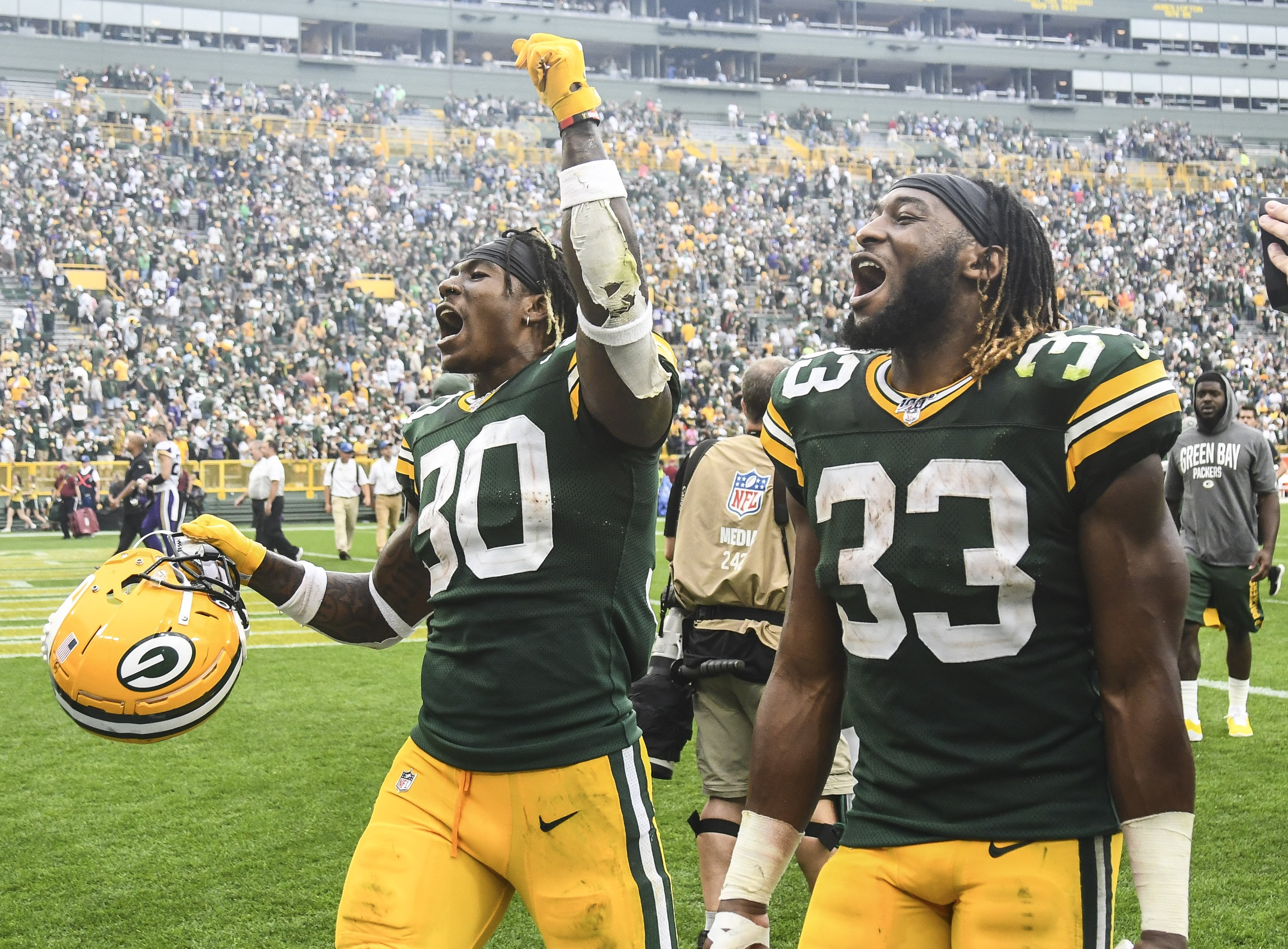

Our very survival is not at stake, and we can take on this capital project ourselves.” “So to maintain our credibility, we are not going to the taxpayer. “The Packers have gone to the public in the past when we were in trouble,” said Jason Wied, vice president and general counsel of the team, who oversees stadium development. In addition to the share sale, the team expects to tap a capital improvement fund dedicated to upgrading the stadium, user fees from the newly added seats and loans from local banks and potentially the N.F.L. The Packers do not have to ask taxpayers for help this time. This year, with a 9-0 record after winning the Super Bowl last season, the Packers are the ninth most valuable franchise in the league, worth $1.089 billion, according to Forbes.

With more seats, restaurants and a new team Hall of Fame, the Packers’ revenue and profits grew. So the team used all the proceeds from its 1997 share sale and the revenue from a half-penny local sales tax increase in Brown County to pay for the expansion of Lambeau Field in 2003. In 2000, just three years after the Packers won the Super Bowl, the team was the 23rd most valuable franchise in the N.F.L., according to Forbes magazine. Unlike teams in New York, Chicago and other big cities, the Packers have fewer well-heeled fans and companies that will spend money on naming rights deals, multimillion-dollar sponsorships and corporate suites. But the championships of the 1960s and the N.F.L.’s decision to split its national television contracts evenly among all of its teams helped stabilize the Packers and keep them in Green Bay, the smallest city in the league. Packers shareholders helped keep the team afloat for many years. In neighboring Minnesota, for instance, the Vikings have been negotiating for years with lawmakers, who are split on whether to help the team build a new stadium and how much the public should contribute. The ability to tap their fans’ seemingly bottomless good will has helped the Packers avoid some of the civic showdowns that have raged in other N.F.L. (The Packers do charge ticket holders a one-time user fee to help pay for renovations, but the prices are relatively modest and the fees are refunded if they give up their tickets.) Unlike the growing number of teams that require fans to pay tens of thousands of dollars for personal seat licenses before they can get season tickets, the Packers do not obligate anyone to buy shares.

In an era when teams routinely beg, threaten and cajole their host cities into helping them build new stadiums, the Packers’ approach of asking their fans to contribute is refreshingly quaint. The money will help offset some of the $143 million needed to add as many as 7,000 seats and replace the scoreboard and sound system at Lambeau Field. The team hopes to raise at least $22 million after fees, about what was generated in 1997, the last time it sold shares. “Everyone wants to be part of this, so I’ll buy a share for my grandson, who is now 1 year old.”

“We live and breathe the Packers,” said Chuck Olsen, the owner of Olsen’s Piggly Wiggly, which does a big business selling bratwursts to tailgaters on game days.
PACKERS STOCK PRICE FULL
And fans who have closets full of Brett Favre jerseys and foam cheeseheads, as well as old stock certificates hanging on the wall, may well shell out hundreds of dollars for more shares, if only because they cannot resist the chance to support their team and indoctrinate the next generation. According to a filing with securities regulators in Utah, the Packers plan to issue shares for about $250 each. In the coming weeks, the team expects to complete its offering of new shares. Yet with the economy flirting with recession and more than 4.75 million shares outstanding, the Packers, who already have 112,264 shareholders, are confident that their fans will line up by the thousands to buy shares again. Perhaps the biggest benefit is that they get to attend the annual shareholders’ meeting, where they can vote on new board members and pepper management with questions. Owners get no discounts on tickets, although some merchandise is available only to shareholders. They offer none of the privileges, or risks, of normal shares: they do not appreciate, are not traded on an exchange and produce no dividends. The Green Bay Packers are the only publicly owned team in the N.F.L., but the value of the shares they will soon offer to fans is almost strictly of the sentimental variety. But here in the heart of Packers country, they are stock certificates that confer to the owner a microscopically thin and perhaps meaningless slice of the hometown team. In any other place, they would be called souvenirs, documents suitable for framing, or even a sham.


 0 kommentar(er)
0 kommentar(er)
